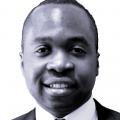“YES, or no?” Who would have thought such an innocuous question would end up being one of the most debated subjects in Scotland?
It’s not quite as pithy but in recent years the question of when a second referendum should take place has given it a run for its money. As an academic who specialises in leadership, that’s interesting to me – and it’s not because of what the answer might be. The fact that the debate has predominantly revolved around this subject, and not so much the pros and cons of independence itself, means that – aside from some obvious exceptions – it’s not entirely clear who will emerge as the “leaders” on each side of the debate. This matters.
Research shows that in a referendum voting is influenced by the feelings of voters on the relevant political leaders. This doesn’t mean that the substance of their argument isn’t relevant – but it doesn’t necessarily have to matter. If there is indeed a second independence referendum in October 2023 as the Scottish Government intends, the outcome may well be decided by who emerges as the front and centre voice – or voices – on both sides.
During the Brexit vote, everyone remember Boris Johnson standing in front of the big red bus, emblazoned with its message about the NHS. But when it came to polling day, which did you think about first – Boris, or the bus, and what it said?
It’s simplistic to suggest that leadership is the only factor in deciding a vote – but it’s highly relevant. It isn’t difficult to find people who backed Brexit because of Boris Johnson, or, for that matter, Nigel Farage. On the other hand, UK-wide, the Remain camp did not have that highly memorable, highly visible leader. The outcome was narrow, but the outcome was Brexit.
Interestingly, the 2014 referendum was a reverse situation in terms of leadership. Alex Salmond was the highly visible leader on the side of Yes, and although Alistair Darling led the Better Together campaign, leadership on that side in terms of who was visible was more fragmented.
Much like with Brexit, the outcome was close – although on this occasion, the side with fragmented leadership won. However, it’s easy to forget that, mere months before September 2014, the Yes camp was badly trailing in the polls. Having a central figure to focus on helped give the pro-independence argument a sudden, and sustained boost; though not, as we know, to the degree that independence won.
In a vote on such a divisive subject, the central leaders can clinch the outcome, and with polls on independence being closer than ever, the central voices on each side will almost certainly be what determines the eventual outcome. For the pro-independence camp, it’s clear who the main voice will be, but the pro-union argument will need to find its central, prominent figure. For this particular vote, research suggests that, unconsciously, it will not be a question of “yes, or no” – it will be a question of leadership.
Christopher Harrison is Reader, School of Business and Creative Industries at the University of the West of Scotland






Why are you making commenting on The Herald only available to subscribers?
It should have been a safe space for informed debate, somewhere for readers to discuss issues around the biggest stories of the day, but all too often the below the line comments on most websites have become bogged down by off-topic discussions and abuse.
heraldscotland.com is tackling this problem by allowing only subscribers to comment.
We are doing this to improve the experience for our loyal readers and we believe it will reduce the ability of trolls and troublemakers, who occasionally find their way onto our site, to abuse our journalists and readers. We also hope it will help the comments section fulfil its promise as a part of Scotland's conversation with itself.
We are lucky at The Herald. We are read by an informed, educated readership who can add their knowledge and insights to our stories.
That is invaluable.
We are making the subscriber-only change to support our valued readers, who tell us they don't want the site cluttered up with irrelevant comments, untruths and abuse.
In the past, the journalist’s job was to collect and distribute information to the audience. Technology means that readers can shape a discussion. We look forward to hearing from you on heraldscotland.com
Comments & Moderation
Readers’ comments: You are personally liable for the content of any comments you upload to this website, so please act responsibly. We do not pre-moderate or monitor readers’ comments appearing on our websites, but we do post-moderate in response to complaints we receive or otherwise when a potential problem comes to our attention. You can make a complaint by using the ‘report this post’ link . We may then apply our discretion under the user terms to amend or delete comments.
Post moderation is undertaken full-time 9am-6pm on weekdays, and on a part-time basis outwith those hours.
Read the rules hereLast Updated:
Report this comment Cancel